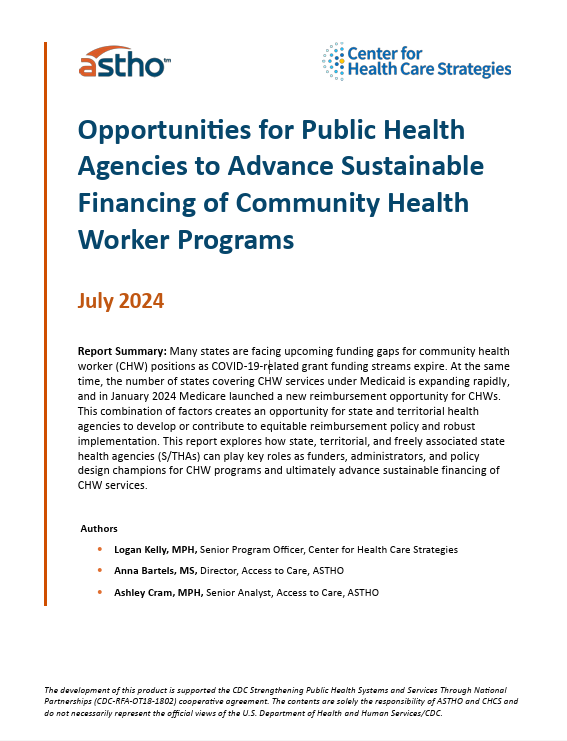Headline
Report highlights key strategies for supporting financially sustainable community health worker (CHW) programs.
Background
CHW programs are often funded through public health grant funds, Medicaid, or Medicare. While these are valuable funding sources, designing sustainable financing models for CHW services remains challenging, particularly when combining funding sources. This report examines how state and territorial health agencies can design and administer financially sustainable CHW programs.
Findings
The report highlights four key strategies for health agencies to support CHW program sustainability:
- Establish clear CHW strategy and coordinated external messaging – Align CHW policies within and across agencies, incorporate CHW strategies into health improvement plans, build relationships with CHW associations, and present consistent messaging about CHW sustainability to partners.
- Support effective Medicaid and Medicare policy design and implementation – Incorporate the perspectives of CHWs in program design, develop adequate reimbursement rates, and provide education on financing opportunities to CHWs and their employers.
- Help organizations develop braided and blended funding models – Incorporate CHWs into broader initiatives addressing health-related social needs, support community-based organizations in developing sustainable funding structures, and encourage the creation of community care hubs.
- Align CHW training and certification programs with financing opportunities – Ensure CHW competencies match reimbursable services, create specialized certification pathways, and facilitate certification reciprocity between states and territories.
Throughout these strategies, an emphasis is placed on designing programs and policies in close collaboration with CHWs and in ways that reflect the unique strengths of this workforce. Health agency approaches and examples, implementation insights, CHW governance structures, and relevant federal grants are included in the report.
Policy/Program Takeaways
State and territorial health officials, CHW program administrators, and policymakers can use this resource to identify practical approaches to sustainably fund CHW programs and support effective implementation.

